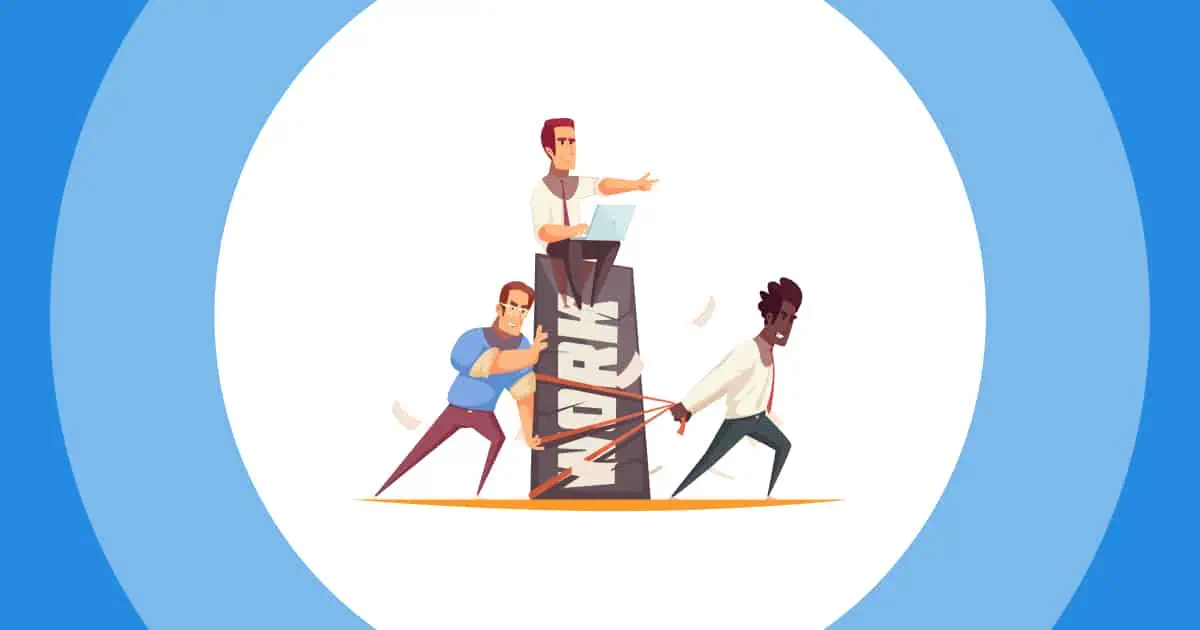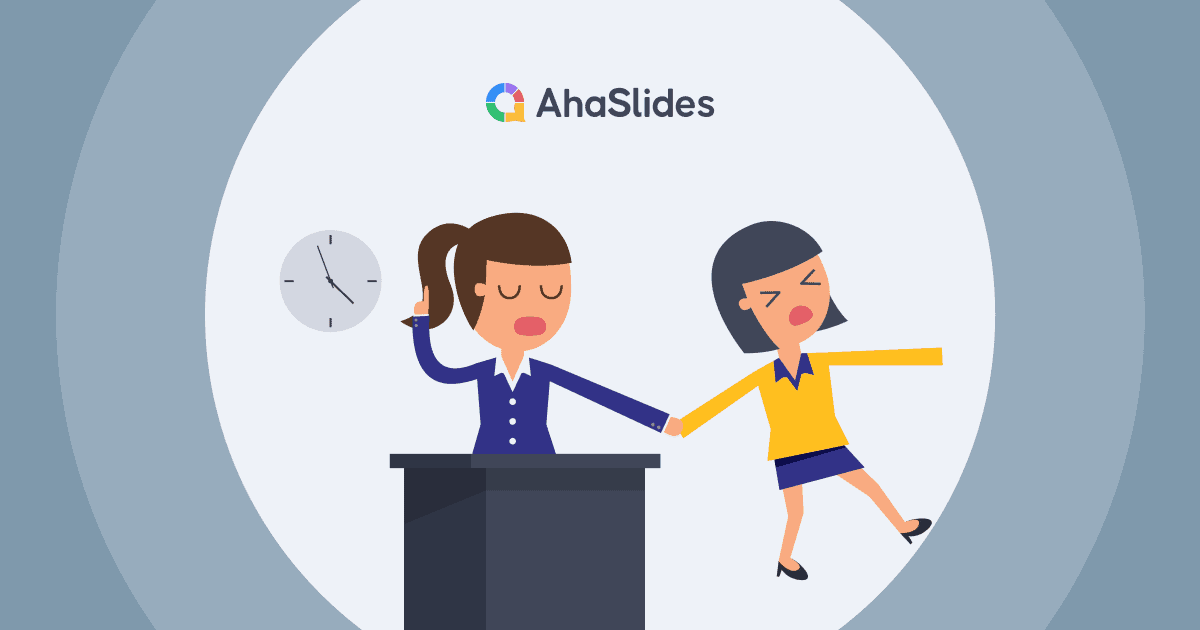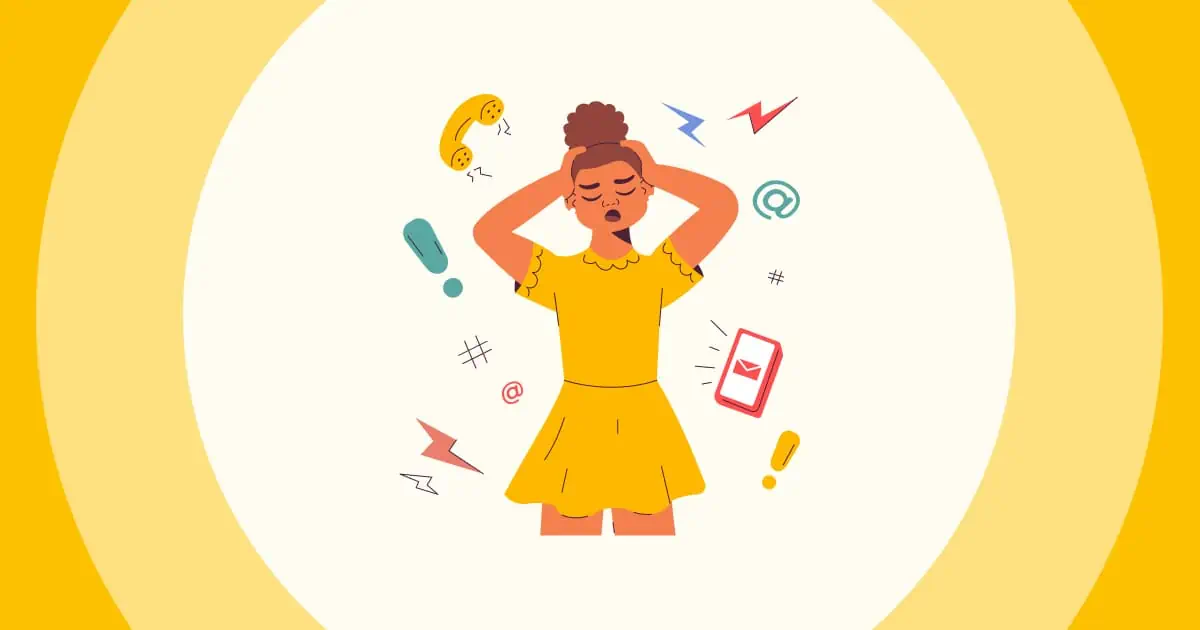![]() O le a le Sone Faamafanafana i le olaga?
O le a le Sone Faamafanafana i le olaga?
![]() A e pipii i se galuega e te ita i ai, pe a e fa'amoemoe e pa'u le 5 kilokalama i totonu o le 3 masina ae e te fa'atuai, e to'atele e fai mai, "Tatou o ese mai lou sone mafanafana, aua ne'i avea le fefe e fai lau filifiliga mo oe. ." O lona uiga, taumafai se mea fou!
A e pipii i se galuega e te ita i ai, pe a e fa'amoemoe e pa'u le 5 kilokalama i totonu o le 3 masina ae e te fa'atuai, e to'atele e fai mai, "Tatou o ese mai lou sone mafanafana, aua ne'i avea le fefe e fai lau filifiliga mo oe. ." O lona uiga, taumafai se mea fou!
![]() I le toetoe lava o tulaga uma, e fautuaina oe e tagata e amata ona faʻalavelave e ausia se mea e sili atu pe a oʻo mai i le faia o soʻo se mea e le o totonu o lau sone mafanafana. O lea la, O le a le Sone Faamafanafana? E lelei pe leaga le Sone Fa'amafanafana? Se'i tatou su'eina le tali i le taimi nei!
I le toetoe lava o tulaga uma, e fautuaina oe e tagata e amata ona faʻalavelave e ausia se mea e sili atu pe a oʻo mai i le faia o soʻo se mea e le o totonu o lau sone mafanafana. O lea la, O le a le Sone Faamafanafana? E lelei pe leaga le Sone Fa'amafanafana? Se'i tatou su'eina le tali i le taimi nei!
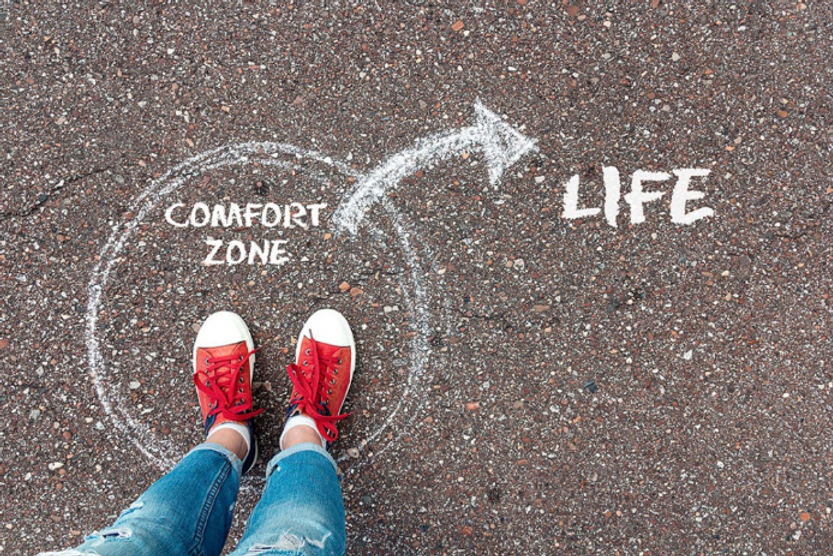
 O le a le Sone Faamafanafana? - Ata: Shutterstock
O le a le Sone Faamafanafana? - Ata: Shutterstock Lisi o Mataupu
Lisi o Mataupu
 O le a le Sone Faamafanafana?
O le a le Sone Faamafanafana? Aisea e Matautia ai le Sone Faamafanafana?
Aisea e Matautia ai le Sone Faamafanafana? O le a le Fa'ata'ita'iga Sone Fa'amafanafana ma Ituaiga Ta'itasi?
O le a le Fa'ata'ita'iga Sone Fa'amafanafana ma Ituaiga Ta'itasi? E fa'afefea ona e alu ese mai lou sone fa'amafanafana?
E fa'afefea ona e alu ese mai lou sone fa'amafanafana? Key Takeaway
Key Takeaway Fesili e Masani ona Fesiligia
Fesili e Masani ona Fesiligia
 O le a le Sone Faamafanafana?
O le a le Sone Faamafanafana?
![]() O le a le sone mafanafana i le olaga? Sone Faamafanafana ua faauigaina o
O le a le sone mafanafana i le olaga? Sone Faamafanafana ua faauigaina o ![]() "se tulaga faʻale-mafaufau lea e masani ai mea i se tagata ma o loʻo nofo filemu ma pulea o latou siosiomaga, o loʻo feagai ma tulaga maualalo o le atuatuvale ma le le mautonu."
"se tulaga faʻale-mafaufau lea e masani ai mea i se tagata ma o loʻo nofo filemu ma pulea o latou siosiomaga, o loʻo feagai ma tulaga maualalo o le atuatuvale ma le le mautonu."
![]() O le mea lea, e mafai ona fa'apea o le la'a i fafo o lou sone mafanafana e ono fa'ateleina ai le popole ma fa'atupu ai le fa'alavelave. Ioe, e moni i se tulaga patino. Fai mai Alasdair White,
O le mea lea, e mafai ona fa'apea o le la'a i fafo o lou sone mafanafana e ono fa'ateleina ai le popole ma fa'atupu ai le fa'alavelave. Ioe, e moni i se tulaga patino. Fai mai Alasdair White, ![]() ina ia ausia le maualuga o le faatinoga, e tatau ona oo i se tasi le tele o le mamafa.
ina ia ausia le maualuga o le faatinoga, e tatau ona oo i se tasi le tele o le mamafa.
![]() O le manatu e faatatau i le fefe. A e filifili e nofo i lou sone mafanafana, atonu e te masani i lenei tulaga ma iloa lelei le auala e taulimaina ai le faʻafitauli ma le mautinoa. O se faailoga lelei, ae e le umi ona o le a tupu se suiga e tusa lava pe e te taumafai e mafaufau i ai.
O le manatu e faatatau i le fefe. A e filifili e nofo i lou sone mafanafana, atonu e te masani i lenei tulaga ma iloa lelei le auala e taulimaina ai le faʻafitauli ma le mautinoa. O se faailoga lelei, ae e le umi ona o le a tupu se suiga e tusa lava pe e te taumafai e mafaufau i ai.
![]() Ma o le sone mafanafana iinei o lona uiga o le faʻaaogaina o le auala e tasi poʻo le mafaufau e taulimaina ai faʻafitauli e le masani ai, e te lagona le le fiafia ma le le faʻamalieina, aloese mai tulaga lamatia, ma e te le manaʻo e fai ni luʻi pe a faia ni fofo eseese. Ma ua o'o i le taimi e alu ai i fafo o lou sone mafanafana ma su'e ni fofo fou.
Ma o le sone mafanafana iinei o lona uiga o le faʻaaogaina o le auala e tasi poʻo le mafaufau e taulimaina ai faʻafitauli e le masani ai, e te lagona le le fiafia ma le le faʻamalieina, aloese mai tulaga lamatia, ma e te le manaʻo e fai ni luʻi pe a faia ni fofo eseese. Ma ua o'o i le taimi e alu ai i fafo o lou sone mafanafana ma su'e ni fofo fou.
 O le a le Fa'ata'ita'iga Sone Faamafanafana ma Ituaiga Ta'itasi
O le a le Fa'ata'ita'iga Sone Faamafanafana ma Ituaiga Ta'itasi
 Sone mafanafana fa'alagona
Sone mafanafana fa'alagona
![]() O tagata i totonu o latou sone mafanafana fa'alagona e ono tete'e i le fa'afetaia'ia o lagona lu'itau po'o le auai i fegalegaleaiga fa'alagona. O le iloaina ma le malamalama i le sone mafanafana faalelagona o se tasi e taua mo
O tagata i totonu o latou sone mafanafana fa'alagona e ono tete'e i le fa'afetaia'ia o lagona lu'itau po'o le auai i fegalegaleaiga fa'alagona. O le iloaina ma le malamalama i le sone mafanafana faalelagona o se tasi e taua mo ![]() lagona faalemafaufau
lagona faalemafaufau![]() ma
ma ![]() tuputupu ae patino.
tuputupu ae patino.
![]() Mo se faʻataʻitaʻiga, o se tagata e musu e faʻaalia le fiafia pe faia ni uo fou ona o le fefe neʻi teena. Ma afai e faʻaauau lenei mea, e ono maua e lenei tagata i latou lava i se mamanu o le faʻaesea, misia ni fesoʻotaʻiga aoga ma aafiaga.
Mo se faʻataʻitaʻiga, o se tagata e musu e faʻaalia le fiafia pe faia ni uo fou ona o le fefe neʻi teena. Ma afai e faʻaauau lenei mea, e ono maua e lenei tagata i latou lava i se mamanu o le faʻaesea, misia ni fesoʻotaʻiga aoga ma aafiaga.
 Sone fa'amalie manatu
Sone fa'amalie manatu
![]() O le Conceptual Comfort Zone e aofia ai tuaoi o le mafaufau ma le atamai o le tagata. E aofia ai le tumau i totonu o mafaufauga masani, talitonuga, ma faʻataʻitaʻiga, aloese mai le faʻaalia o manatu e luʻitauina pe feteʻenaʻi manatu o iai.
O le Conceptual Comfort Zone e aofia ai tuaoi o le mafaufau ma le atamai o le tagata. E aofia ai le tumau i totonu o mafaufauga masani, talitonuga, ma faʻataʻitaʻiga, aloese mai le faʻaalia o manatu e luʻitauina pe feteʻenaʻi manatu o iai.
![]() E taua le alu ese mai le sone mafanafana manatu e talia le eseesega o le mafaufau, suʻesuʻe manatu fou, ma avea
E taua le alu ese mai le sone mafanafana manatu e talia le eseesega o le mafaufau, suʻesuʻe manatu fou, ma avea ![]() tatala i isi manatu
tatala i isi manatu![]() . O iina e faafaigofieina ai le fatufatua'i, mafaufauga faitio, ma le tele o aoaoga.
. O iina e faafaigofieina ai le fatufatua'i, mafaufauga faitio, ma le tele o aoaoga.
![]() Mo se faʻataʻitaʻiga, afai e iai sau pisinisi, atonu e te matauina mo mea lelei uma e tupu, o loʻo i ai se mea le lelei. Mo se fa'ata'ita'iga, atonu e te maua se tagata fou, ae leiloa se tasi o iai. E pei lava ona e amata lagona e pei o loʻo e alualu i luma, e sau se mea e toe faʻafoʻi ai oe. E faʻaalia ai ua oʻo i le taimi e sui ai manatu ma faʻamatalaga.
Mo se faʻataʻitaʻiga, afai e iai sau pisinisi, atonu e te matauina mo mea lelei uma e tupu, o loʻo i ai se mea le lelei. Mo se fa'ata'ita'iga, atonu e te maua se tagata fou, ae leiloa se tasi o iai. E pei lava ona e amata lagona e pei o loʻo e alualu i luma, e sau se mea e toe faʻafoʻi ai oe. E faʻaalia ai ua oʻo i le taimi e sui ai manatu ma faʻamatalaga.
 Sone mafanafana masani
Sone mafanafana masani
![]() O le Sone Fa'amafanafanaga Fa'ata'ita'i e fa'atatau i gaoioiga a le tagata i lea aso ma lea aso, masani, ma amioga. E aofia ai le pipiimau i mamanu masani poʻo le vaʻaia, masani, ma metotia i vaega eseese o le olaga, e pei o galuega, mafutaga, ma galuega i aso taitasi.
O le Sone Fa'amafanafanaga Fa'ata'ita'i e fa'atatau i gaoioiga a le tagata i lea aso ma lea aso, masani, ma amioga. E aofia ai le pipiimau i mamanu masani poʻo le vaʻaia, masani, ma metotia i vaega eseese o le olaga, e pei o galuega, mafutaga, ma galuega i aso taitasi.
![]() A e sauni e faʻaumatia lau sone faʻamafanafanaga aoga, ua e sauni e faʻataʻitaʻi ni auala fou, faʻafeiloaʻi luitau e le masani ai, ma talia suiga i vaega aoga o le olaga. E taua tele mo le atinaʻeina o le tagata lava ia ma faʻapolofesa, faʻapea foʻi ma le fetuutuunai i tulaga faʻasolosolo.
A e sauni e faʻaumatia lau sone faʻamafanafanaga aoga, ua e sauni e faʻataʻitaʻi ni auala fou, faʻafeiloaʻi luitau e le masani ai, ma talia suiga i vaega aoga o le olaga. E taua tele mo le atinaʻeina o le tagata lava ia ma faʻapolofesa, faʻapea foʻi ma le fetuutuunai i tulaga faʻasolosolo.
![]() Mo se faʻataʻitaʻiga, e uia e se tagata le ala lava e tasi e galue ai, 'ai i faleaiga tutusa, e leʻi aʻoaʻoina se tomai fou mo le tele o tausaga, ma fegalegaleai i liʻo tutusa. O se faʻataʻitaʻiga atoatoa o le tumau i totonu o lou loto
Mo se faʻataʻitaʻiga, e uia e se tagata le ala lava e tasi e galue ai, 'ai i faleaiga tutusa, e leʻi aʻoaʻoina se tomai fou mo le tele o tausaga, ma fegalegaleai i liʻo tutusa. O se faʻataʻitaʻiga atoatoa o le tumau i totonu o lou loto
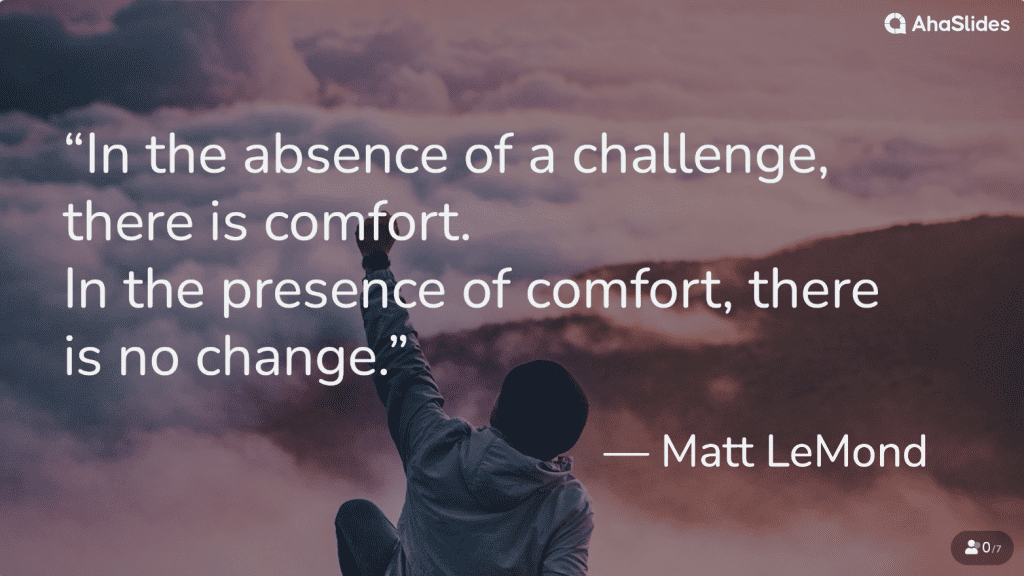
 O le a le sone mafanafana?
O le a le sone mafanafana? Aisea e Matautia ai le Sone Faamafanafana?
Aisea e Matautia ai le Sone Faamafanafana?
![]() O le sone mafanafana e matautia pe a e nofo i totonu mo se taimi umi. O mafuaaga nei e 6 e le tatau ai ona e nofo umi i le sone mafanafana e aunoa ma le faia o se suiga.
O le sone mafanafana e matautia pe a e nofo i totonu mo se taimi umi. O mafuaaga nei e 6 e le tatau ai ona e nofo umi i le sone mafanafana e aunoa ma le faia o se suiga.
 Faʻamalie
Faʻamalie
![]() O le tumau i le sone mafanafana e fa'atupu ai le fa'amalieina. "Fa'amalieina" e fa'atatau i se tulaga o le fa'amalieina o ia lava, fa'amalieina, ma le le popole i ni lu'itau po'o ni fa'aleleia atili. O le masani masani ma le masani masani o le sone mafanafana e mafai ona taʻitaʻia ai le leai o se faʻamalosi ma le faʻaitiitia o le taʻavale mo le tagata lava ia ma
O le tumau i le sone mafanafana e fa'atupu ai le fa'amalieina. "Fa'amalieina" e fa'atatau i se tulaga o le fa'amalieina o ia lava, fa'amalieina, ma le le popole i ni lu'itau po'o ni fa'aleleia atili. O le masani masani ma le masani masani o le sone mafanafana e mafai ona taʻitaʻia ai le leai o se faʻamalosi ma le faʻaitiitia o le taʻavale mo le tagata lava ia ma ![]() faaleleia faapolofesa.
faaleleia faapolofesa. ![]() Faʻamalieina
Faʻamalieina![]() e fa'alavelaveina le tulituliloaina o le tulaga lelei ma taofia ai le naunau e ausia atili.
e fa'alavelaveina le tulituliloaina o le tulaga lelei ma taofia ai le naunau e ausia atili.
 Avanoa e sui
Avanoa e sui
![]() O tagata e fiafia i le avanoa o loʻo i ai nei e masani lava ona tetee i suiga. E ui ina maua ai se lagona o le mautu, e tuua ai foi tagata e le o saunia e feagai ma suiga e lei faamoemoeina. I le aluga o taimi, o lenei teteʻe e mafai ona faʻaleagaina tagata taʻitoʻatasi i tulaga e manaʻomia ai le fetuutuunai ma le fetuutuunai.
O tagata e fiafia i le avanoa o loʻo i ai nei e masani lava ona tetee i suiga. E ui ina maua ai se lagona o le mautu, e tuua ai foi tagata e le o saunia e feagai ma suiga e lei faamoemoeina. I le aluga o taimi, o lenei teteʻe e mafai ona faʻaleagaina tagata taʻitoʻatasi i tulaga e manaʻomia ai le fetuutuunai ma le fetuutuunai.
 Leai se tulaga lamatia, leai se taui
Leai se tulaga lamatia, leai se taui
![]() O se fa'aupuga fa'alaua'itele o lona uiga "afai e te le maua avanoa e te le selesele lava." O le tuputupu a'e ma le manuia e masani lava ona maua mai i le faia o tulaga lamatia fuafuaina. O lo'o fa'amamafaina ai le manatu o le ta'alo saogalemu ma le nofo i totonu o le sone mafanafana a se tasi e ono taofia ai avanoa mo ni taunu'uga taua. Aveina
O se fa'aupuga fa'alaua'itele o lona uiga "afai e te le maua avanoa e te le selesele lava." O le tuputupu a'e ma le manuia e masani lava ona maua mai i le faia o tulaga lamatia fuafuaina. O lo'o fa'amamafaina ai le manatu o le ta'alo saogalemu ma le nofo i totonu o le sone mafanafana a se tasi e ono taofia ai avanoa mo ni taunu'uga taua. Aveina ![]() fua faʻatatau
fua faʻatatau![]() e aofia ai le faia o fa'ai'uga fa'apitoa ma fa'ata'atia e, a'o iai se tulaga o le le mautonu, e ono maua ai ni fa'ai'uga lelei.
e aofia ai le faia o fa'ai'uga fa'apitoa ma fa'ata'atia e, a'o iai se tulaga o le le mautonu, e ono maua ai ni fa'ai'uga lelei.
 Faʻaitiitia le faʻaogaina o faʻafitauli
Faʻaitiitia le faʻaogaina o faʻafitauli
![]() O le laa ese mai lou sone mafanafana e taua tele pe a feagai ma faʻafitauli, pe fesoʻotaʻi ma le olaga, galuega, poʻo mafutaga. E fai lava si mata'utia le taofi o le mafaufau tuai po'o le masani o le foia o faafitauli a'o suia le siosiomaga, aemaise lava i lenei vaitau. E ono o'o atu ai i le tuai i le fetuuna'i i faiga fou, lu'i fa'atupu, ma avanoa fa'asolosolo.
O le laa ese mai lou sone mafanafana e taua tele pe a feagai ma faʻafitauli, pe fesoʻotaʻi ma le olaga, galuega, poʻo mafutaga. E fai lava si mata'utia le taofi o le mafaufau tuai po'o le masani o le foia o faafitauli a'o suia le siosiomaga, aemaise lava i lenei vaitau. E ono o'o atu ai i le tuai i le fetuuna'i i faiga fou, lu'i fa'atupu, ma avanoa fa'asolosolo.
![]() E le gata i lea, o le lalolagi ua sili atu ona fesoʻotaʻi nai lo se isi lava taimi, faʻatasi ai ma le faʻavaomalo o loʻo aʻafia ai tamaoaiga, aganuu, ma mafutaga.
E le gata i lea, o le lalolagi ua sili atu ona fesoʻotaʻi nai lo se isi lava taimi, faʻatasi ai ma le faʻavaomalo o loʻo aʻafia ai tamaoaiga, aganuu, ma mafutaga. ![]() Faʻafitauli faʻafitauli
Faʻafitauli faʻafitauli![]() i lenei tulaga fa'alelalolagi e mana'omia ai le naunau e malamalama i va'aiga eseese ma fa'afetaui i le natura feso'ota'i o tatou sosaiete.
i lenei tulaga fa'alelalolagi e mana'omia ai le naunau e malamalama i va'aiga eseese ma fa'afetaui i le natura feso'ota'i o tatou sosaiete.
 Misia avanoa e faalautele ai lou sone mafanafana
Misia avanoa e faalautele ai lou sone mafanafana
![]() O se tasi o mafuaaga sili ona malosi e laa ese ai mai lau sone mafanafana o le faʻalauteleina lea. A e fa'alavelave, talia le le to'a ma le masalosalo, ma i'u ai ina manuia, e le gata ina e fa'aleleia atili lou tomai fa'aopoopo ae fa'ateleina ai lou mautinoa. O le tele o lou lu'iina o oe lava i ni gaoioiga fou ma faigata, o le sili atu foi lea o le fa'alelei ma le fa'anatura, fa'asolosolo fa'alauteleina lou sone fa'alelei i itu tetele ma tetele.
O se tasi o mafuaaga sili ona malosi e laa ese ai mai lau sone mafanafana o le faʻalauteleina lea. A e fa'alavelave, talia le le to'a ma le masalosalo, ma i'u ai ina manuia, e le gata ina e fa'aleleia atili lou tomai fa'aopoopo ae fa'ateleina ai lou mautinoa. O le tele o lou lu'iina o oe lava i ni gaoioiga fou ma faigata, o le sili atu foi lea o le fa'alelei ma le fa'anatura, fa'asolosolo fa'alauteleina lou sone fa'alelei i itu tetele ma tetele.
 Leai se avanoa e tupu ai
Leai se avanoa e tupu ai
![]() Afai e te manaʻo moni e faʻateleina le tuputupu aʻe ma faʻaleleia atili, e leai se auala sili atu nai lo le laa i fafo atu o lau sone mafanafana.
Afai e te manaʻo moni e faʻateleina le tuputupu aʻe ma faʻaleleia atili, e leai se auala sili atu nai lo le laa i fafo atu o lau sone mafanafana. ![]() "O le olaga e amata i le faaiuga o lou sone mafanafana."
"O le olaga e amata i le faaiuga o lou sone mafanafana."![]() - Neale Donal Walsch. Fai mai foi Tony Robbins: "O le tuputupu ae uma e amata i le faaiuga o lou sone mafanafana". Afai e te musu e tuua lou mafanafana, o loʻo e faʻatapulaʻaina ou tomai ma gafatia, e suʻesuʻe au taleni natia ma fausia se faʻataʻitaʻiga sili atu o oe lava. E pei lava o le nofo i totonu o se vaituloto pe a faatalitali le vasa tele o avanoa e suʻesuʻe ai.
- Neale Donal Walsch. Fai mai foi Tony Robbins: "O le tuputupu ae uma e amata i le faaiuga o lou sone mafanafana". Afai e te musu e tuua lou mafanafana, o loʻo e faʻatapulaʻaina ou tomai ma gafatia, e suʻesuʻe au taleni natia ma fausia se faʻataʻitaʻiga sili atu o oe lava. E pei lava o le nofo i totonu o se vaituloto pe a faatalitali le vasa tele o avanoa e suʻesuʻe ai.
 E fa'afefea ona e alu ese mai lou sone fa'amafanafana?
E fa'afefea ona e alu ese mai lou sone fa'amafanafana?
![]() O le a le umi na e faia ai se suiga i mausa i aso taitasi ma le mafanafana, 3 masina, 1 tausaga, pe sili atu i le 5 tausaga? Se'i o tatou fa'aalu sina taimi e nofouta ai ma mafaufau ia te oe lava e iloa ai mea o lo'o taofia ai oe.
O le a le umi na e faia ai se suiga i mausa i aso taitasi ma le mafanafana, 3 masina, 1 tausaga, pe sili atu i le 5 tausaga? Se'i o tatou fa'aalu sina taimi e nofouta ai ma mafaufau ia te oe lava e iloa ai mea o lo'o taofia ai oe.
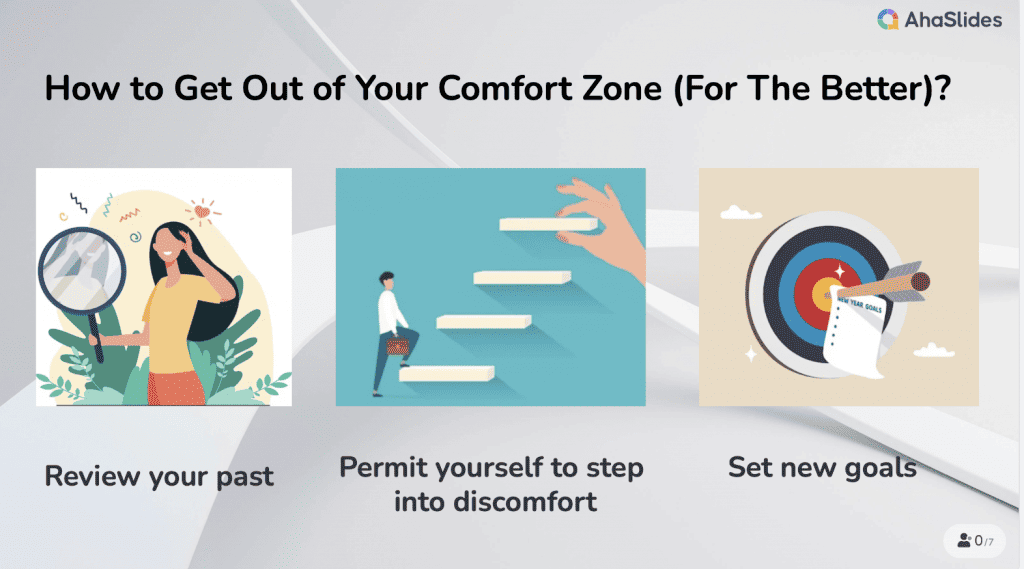
 O le a le Sone Faamafanafana ma laasaga e 3 e alu ese ai mai lau Sone Faamafanafana -
O le a le Sone Faamafanafana ma laasaga e 3 e alu ese ai mai lau Sone Faamafanafana - Ata: Freepik
Ata: Freepik  Toe iloilo lou taimi ua tuanai
Toe iloilo lou taimi ua tuanai
![]() Pe sa i ai i tagata uma o lo'o siomia oe se galuega "masani" a'o e tuputupu a'e? Pe na ta'u atu ea ia te oe e tatau ona e galue tau lava ina ia maua tupe ma na o le pau lena o le mea? E te le fiafia pe a fai mai se tasi o oe ma lou olaga e foliga tutusa ma oe i le 10 tausaga talu ai?
Pe sa i ai i tagata uma o lo'o siomia oe se galuega "masani" a'o e tuputupu a'e? Pe na ta'u atu ea ia te oe e tatau ona e galue tau lava ina ia maua tupe ma na o le pau lena o le mea? E te le fiafia pe a fai mai se tasi o oe ma lou olaga e foliga tutusa ma oe i le 10 tausaga talu ai?
 Fa'ataga oe lava e laa atu i le le fiafia
Fa'ataga oe lava e laa atu i le le fiafia
![]() O le la'asaga pito sili ona taua - talia le fa'anoanoa ma le fa'alavelave pe a e alu ese mai lou sone mafanafana. Mafaufau i le tulaga sili ona leaga pe a e taumafai i se mea fou. E leai se isi auala e ui ai, e faigata, ae afai e te manumalo i ai, o le a tele taui ma le tuputupu aʻe patino o loʻo faʻatali mo oe i le isi itu.
O le la'asaga pito sili ona taua - talia le fa'anoanoa ma le fa'alavelave pe a e alu ese mai lou sone mafanafana. Mafaufau i le tulaga sili ona leaga pe a e taumafai i se mea fou. E leai se isi auala e ui ai, e faigata, ae afai e te manumalo i ai, o le a tele taui ma le tuputupu aʻe patino o loʻo faʻatali mo oe i le isi itu.
 Seti ni sini fou
Seti ni sini fou
![]() A mae'a ona iloa le mafua'aga autu ma le fa'afitauli, se'i amata ona tusia se sini manino ma fa'amalamalama. E mafai ona avea ma sini i aso taʻitasi, vaiaso, masina, poʻo tausaga taʻitasi. Aua le fa'afaigata. O le alu ese mai lau sone mafanafana e le o se faʻasaoina o le lalolagi i malosiaga tetele, amata i sini faigofie ma faʻatino vave. E leai se avanoa mo le faatuai. O le talepeina i lalo o lau sini tele i ni laʻasaga laʻititi, faʻatautaia e faʻafaigofie ai le faʻagasologa ma faʻaitiitia ai le lofituina.
A mae'a ona iloa le mafua'aga autu ma le fa'afitauli, se'i amata ona tusia se sini manino ma fa'amalamalama. E mafai ona avea ma sini i aso taʻitasi, vaiaso, masina, poʻo tausaga taʻitasi. Aua le fa'afaigata. O le alu ese mai lau sone mafanafana e le o se faʻasaoina o le lalolagi i malosiaga tetele, amata i sini faigofie ma faʻatino vave. E leai se avanoa mo le faatuai. O le talepeina i lalo o lau sini tele i ni laʻasaga laʻititi, faʻatautaia e faʻafaigofie ai le faʻagasologa ma faʻaitiitia ai le lofituina.
 Key Takeaway
Key Takeaway
![]() O le a le sone mafanafana i lou olaga? Aoao e uiga ia te oe lava ma faia ni faʻaleleia e le o tuai.
O le a le sone mafanafana i lou olaga? Aoao e uiga ia te oe lava ma faia ni faʻaleleia e le o tuai.
![]() 💡Mo nisi musumusuga, siaki AhaSlides i le taimi lava lena! Suia le auala masani e tuʻuina atu ai se PPT sili atu ona fou ma faʻaogaina ma le
💡Mo nisi musumusuga, siaki AhaSlides i le taimi lava lena! Suia le auala masani e tuʻuina atu ai se PPT sili atu ona fou ma faʻaogaina ma le ![]() AhaSlides meafaigaluega faʻaalia.
AhaSlides meafaigaluega faʻaalia.![]() Fai se su'ega tuusa'o, faia ni palota fefa'asoaa'i, fa'atino manatu palepalealuga, ma fa'atupu manatu lelei ma lau 'au!
Fai se su'ega tuusa'o, faia ni palota fefa'asoaa'i, fa'atino manatu palepalealuga, ma fa'atupu manatu lelei ma lau 'au!
 Fesili e Masani ona Fesiligia
Fesili e Masani ona Fesiligia
![]() O le a le faafeagai o le sone mafanafana?
O le a le faafeagai o le sone mafanafana?
![]() Fai mai o le faafeagai o le Sone Faamafanafana o le Danger Zone, lea e faasino i se avanoa po o se tulaga e faateleina ai tulaga lamatia, luitau, po o tulaga lamatia e ono tulai mai. Ae ui i lea, e manatu le toʻatele o le Growth Zone, lea e fetuutuunaʻi ai tagata taʻitoʻatasi ma aʻoaʻoina tomai fou ma poto masani, ma le tumu i le faʻamoemoe ma le fiafia mo le lumanaʻi.
Fai mai o le faafeagai o le Sone Faamafanafana o le Danger Zone, lea e faasino i se avanoa po o se tulaga e faateleina ai tulaga lamatia, luitau, po o tulaga lamatia e ono tulai mai. Ae ui i lea, e manatu le toʻatele o le Growth Zone, lea e fetuutuunaʻi ai tagata taʻitoʻatasi ma aʻoaʻoina tomai fou ma poto masani, ma le tumu i le faʻamoemoe ma le fiafia mo le lumanaʻi.
![]() O le a se upusii lauiloa e uiga i sone mafanafana?
O le a se upusii lauiloa e uiga i sone mafanafana?
![]() O nisi nei o upusii musuia e faʻamalosia oe e alu ese mai lau sone mafanafana:
O nisi nei o upusii musuia e faʻamalosia oe e alu ese mai lau sone mafanafana:
 “O le vave ona e laa ese mai lou sone mafanafana o le a e iloa ai e matua le faigofie tele.” - Eddie Harris, Jr.
“O le vave ona e laa ese mai lou sone mafanafana o le a e iloa ai e matua le faigofie tele.” - Eddie Harris, Jr.  "O mea sili e leʻi sau mai sone mafanafana."
"O mea sili e leʻi sau mai sone mafanafana."  O nisi taimi e tatau ona tatou laa ese mai o tatou sone mafanafana. E tatau ona tatou soli tulafono. Ma e tatau ona tatou iloa le tuinanau o le fefe. E tatau ona tatou feagai, lu’i, sisiva ma.” — Kyra Davis
O nisi taimi e tatau ona tatou laa ese mai o tatou sone mafanafana. E tatau ona tatou soli tulafono. Ma e tatau ona tatou iloa le tuinanau o le fefe. E tatau ona tatou feagai, lu’i, sisiva ma.” — Kyra Davis “O se vaa i totonu o le uafu e saogalemu, ae e le o le mea lena e fausia ai se vaa.” — Ioane Aokuso Shedd
“O se vaa i totonu o le uafu e saogalemu, ae e le o le mea lena e fausia ai se vaa.” — Ioane Aokuso Shedd
![]() Faʻamata:
Faʻamata: ![]() Peopledevelopment magazine |
Peopledevelopment magazine | ![]() Forbes
Forbes

